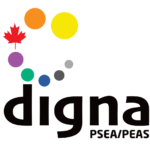GAC has subscribed to the UN definitions on sexual exploitation, sexual abuse and sexual harassment. Sexual harassment is defined as[1]:
Sexual harassment is not SEA. Sexual harassment refers to prohibited conduct in the work context and can be committed against UN staff and related personnel. In context of the United Nations, sexual harassment primarily describes prohibited behaviour against another UN staff or related personnel, which may also include nationals of the host state. It is defined for UN staff by ST/SGB/2008/5 and similar directives for uniformed personnel and involves any unwelcome sexual advance, request for sexual favour, verbal or physical conduct or gesture of a sexual nature, or any other behaviour of a sexual nature that might reasonably be expected or be perceived to cause offence or humiliation to another, when such conduct interferes with work, is made a condition of employment or creates an intimidating, hostile or offensive work environment.
Sexual harassment is misconduct that happens within the work environment. As such, victims of misconduct that happens in the workplace are supposed to be supported by provisions in labour laws and labour codes, which are different than the rights and recourse options for those who are not employed (as staff or voluntarily) by an organization. GAC has narrowed the scope of work related to PSEA because the focus is on protecting the ultimate beneficiaries of international assistance. When it comes to international assistance, we have a particular responsibility to ensure that we do no harm to those who are supposed to benefit from our work. The FIAP specifically targets international assistance towards reaching the poorest and the most vulnerable, and they are who GAC is trying to protect through our PSEA efforts.
[1] United Nations Glossary on Sexual Exploitation and Abuse
